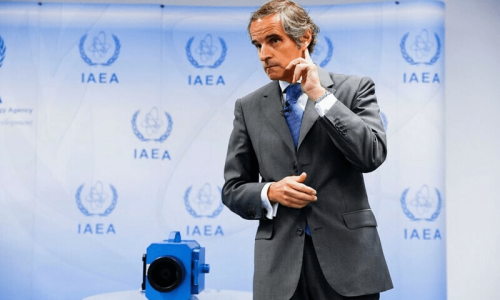ISLAMABAD, Sept 27: The technical committee on water resources has asked the federal government to immediately sign a water treaty with Afghanistan on river Kabul to base future irrigation planning on firm data.
The committee's meeting was held on Monday and was presided over by A.N.G. Abbasi. It was briefed by Pakistan commissioner for Indus Waters Syed Jamat Ali Shah and member water Wapda M. Amin.
Sources said that Mr Shah told the committee about his assessment of Indian plans about water coming from eastern rivers, indicating that India would not stop more than 2-3 million acre-foot (MAF) of water from these rivers.
Wapda member, the sources said, was estimating an annual inflow of about eight MAF of water from eastern rivers and projected the total water availability to be about 154-156 MAF based on these figures.
Sindh representatives, however, insisted that the projections of both Mr Shah and Mr Amin were not correct because India had to irrigate more than 1.3 million acres of land from these rivers and has so far irrigated less than 800,000 acres.
This, they suggested, meant that India would still like to irrigate more than 500,000 acres from the eastern rivers and hence would require more water than anticipated by Wapda or the Pakistan commissioner for Indus Waters.
The Sindh representatives, sources said, also insisted that the average maximum annual water availability could not exceed 138 MAF. ANG Abbasi told reporters after the meeting that Pakistan Commissioner for Indus Waters Jamat Ali Shah made a very valuable contribution to the committee.
He said that Wapda also presented its figures on total water availability and had also come up with its recommendations. Terming figures for water availability mentioned in the 1991 water accord and basic Wapda figures sacrosanct, he said that some aspects would have to be investigated.
He said that the committee also reviewed the status of studies on Kotri downstream and was informed that the job would be completed within the next six months. He said that the committee still had a lot of time to complete its report by February 2005 and expressed the hope that the committee would achieve the target but would not compromise on the quality of the report.
Mr Abbasi said that the committee discussed prospects of water flows from river Kabul and felt that there should be a water treaty between the two countries, enabling Pakistan to make long-term water availability projections.












































Dear visitor, the comments section is undergoing an overhaul and will return soon.